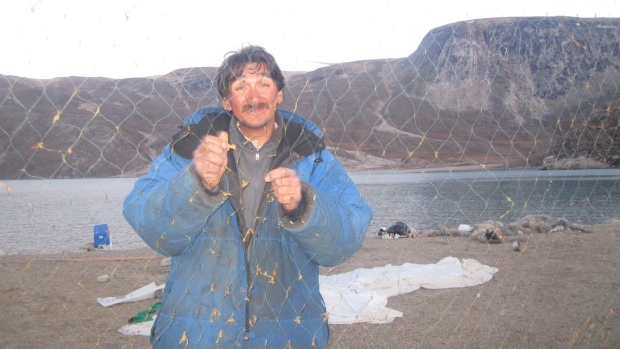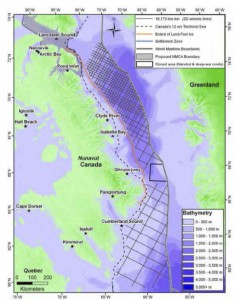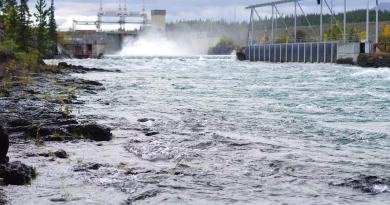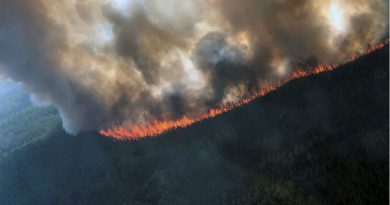Seismic testing approved over Inuit opposition in Canada’s eastern Arctic

Canada’s National Energy Board has approved a five-year plan for seismic detection of oil and gas reserves under the sea in Baffin Bay and Davis Strait in Canada’s eastern Arctic.
Inuit leaders have expressed widespread strong concern about the proposal, with the Qikiqtani Inuit Association’s outgoing president expressing disappointment with the decision. They say the approval should have been delayed until a strategic environmental assessment has been completed by the Department of Aboriginal Affairs and Northern Development (AAND)
The project involves an international consortium of three mining companies under the umbrella name Multi-Klient Invest, or MKI. The seismic tests involve towing an air gun behind a ship up and down the waters of Baffin Bay and Davis Strait, off Baffin Island’s east coast. The gun will blast with the concussive sound waves penetrate the water and the seabed below.
The reflected sound data is then analyzed to determine the geology below the seabed. Such data is often sold to third parties to gauge the potential for oil and gas development.
Aboriginal groups are concerned about the effects of these loud concussive noises on marine life, which they depend upon.
Effect of noise on animals

Part of a scientific study published in the Canadian Journal of Zoology in 2007 reads, “Acoustic pollution is of special concern for cetaceans (whales, dolphins, and porpoises), known to be a very vocal taxonomic group, as they are highly dependent on sound not only as their principal sense, but in critical areas of their social and sensory biology (Tyack and Miller 2002). Indeed, most marine species such as fish use sound for almost all aspects of their life, including reproduction, feeding, predator and hazard avoidance, communication, and navigation (Popper 2003). In the marine environment, vision is only useful over tens of metres, whereas sound can be heard for hundreds, even thousands, of kilometres.”
As part of the widespread aboriginal opposition, several Baffin mayors passed a resolution in March opposing seismic testing and oil and gas development at this time.
Bernard Valcourt, the AAND minister, said he saw no reason to delay the testing since the information would help in the environmental assessment.
Inuit groups say in spite of the decision to allow testing to proceed, they will continue efforts to try to influence the testing and be a part of the decision-making process.
Related stories from around the North:
Canada: Rights, resource development take centre stage in Canada’s northwest Yukon territory, CBC News
Finland: Finland last to sign indigenous rights treaty?, Yle News
Sweden: Land, water rights big issues in Sweden’s Sami elections, Radio Sweden
United States: Salmon run’s survival trumps religious rights of Alaska Native fishermen: judge, Alaska Dispatch



